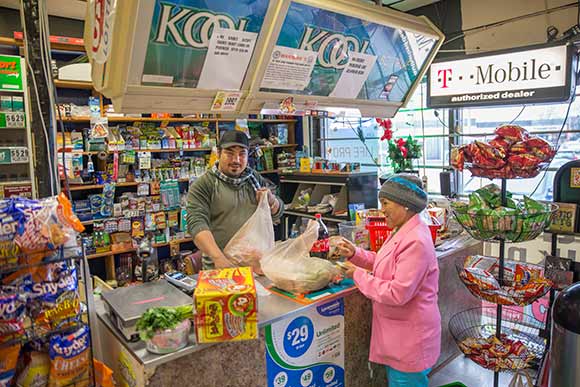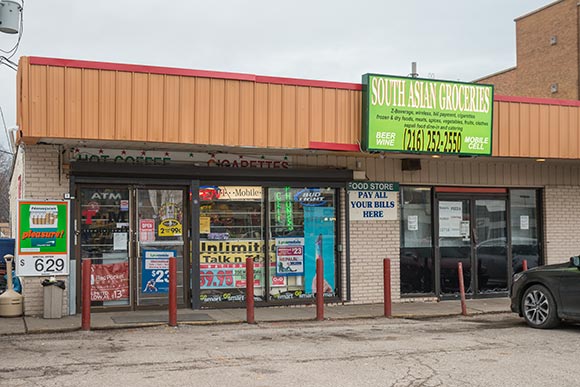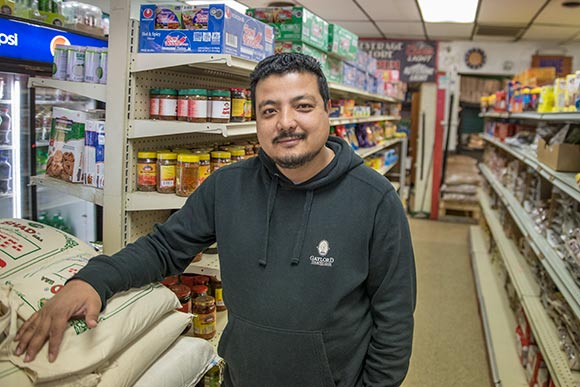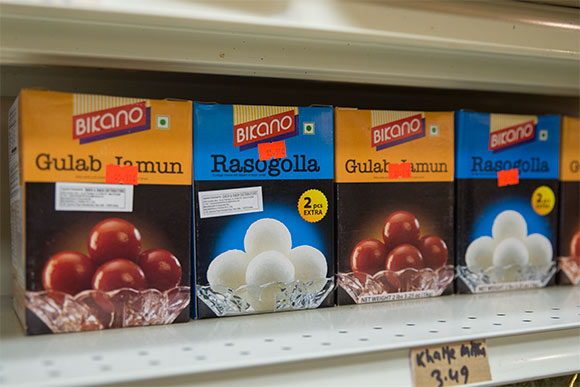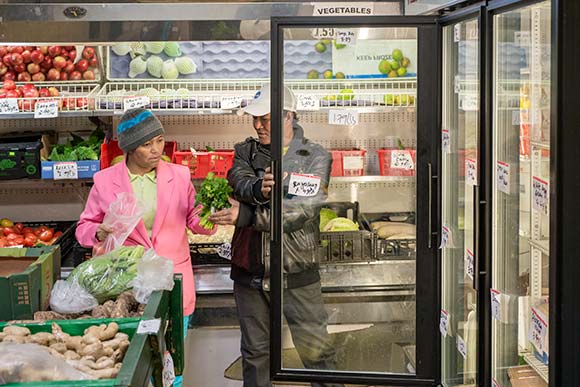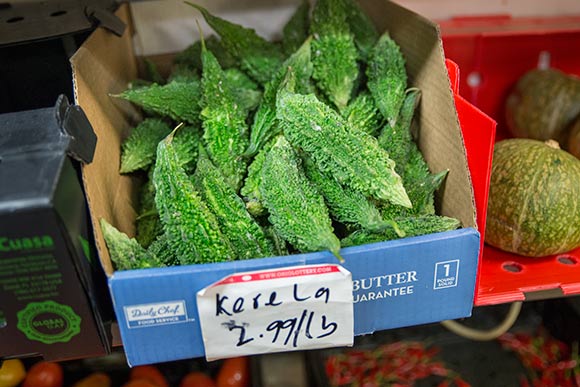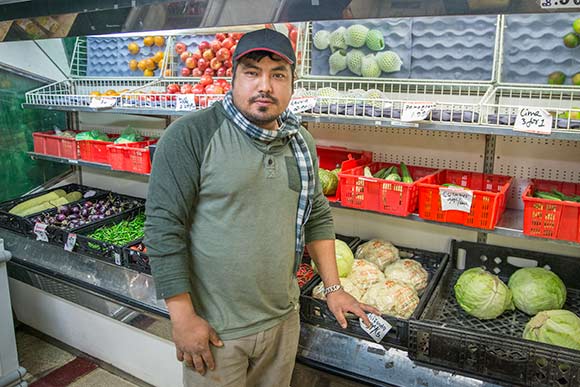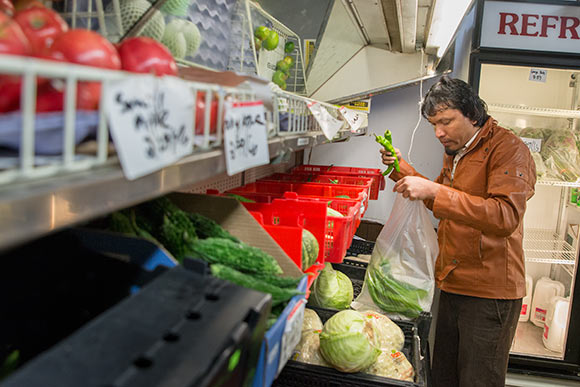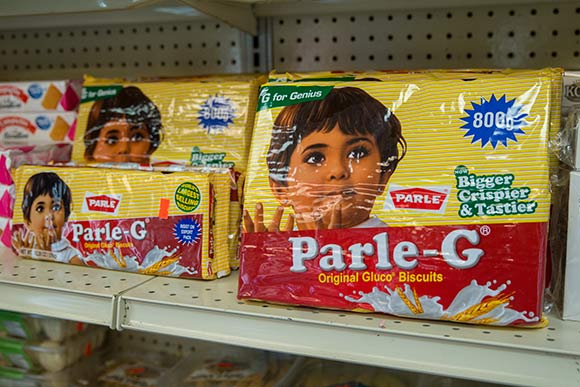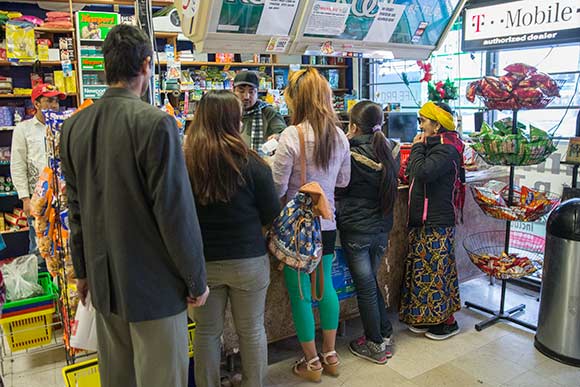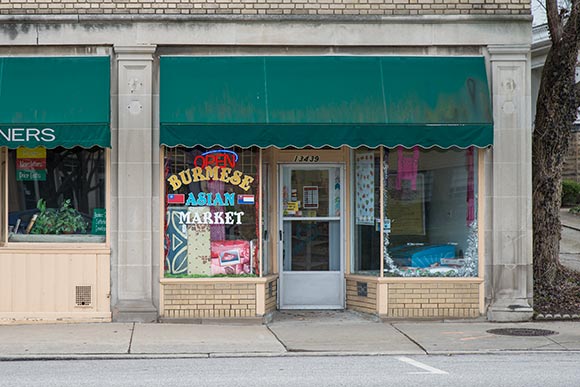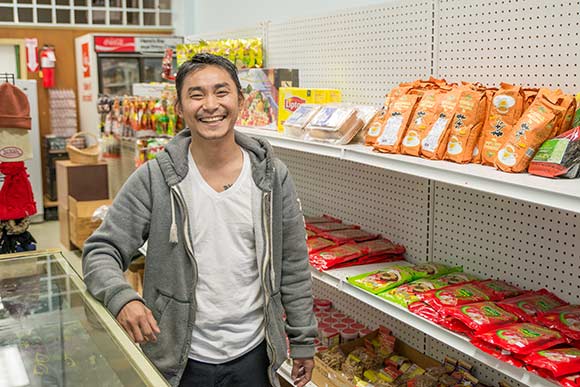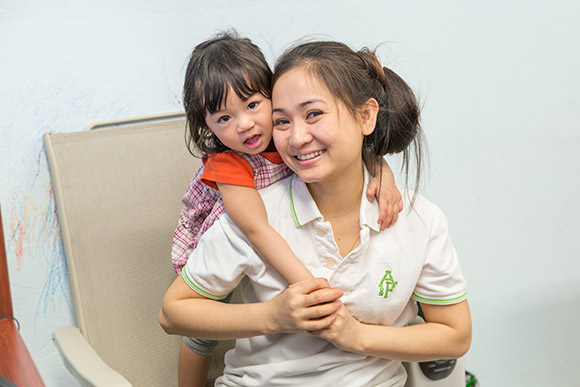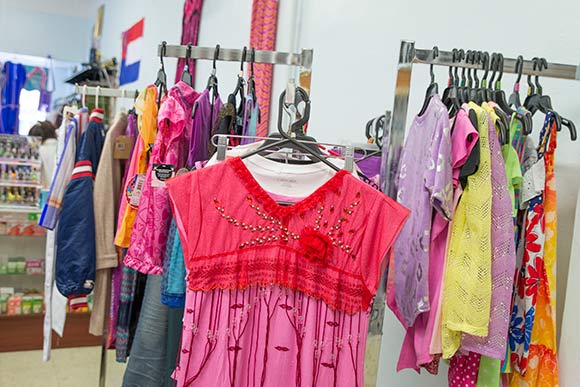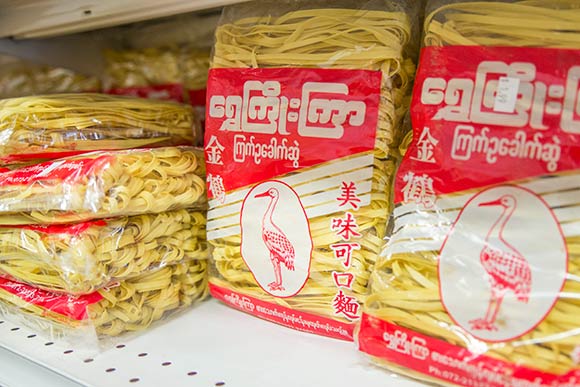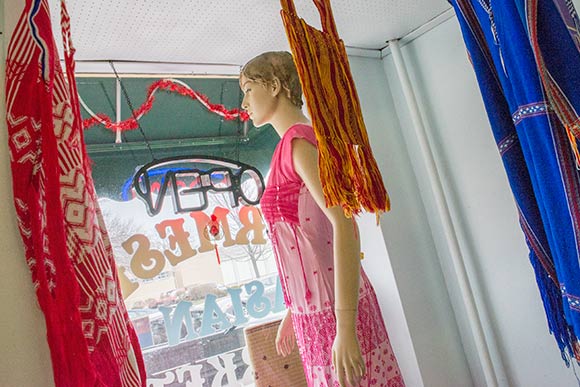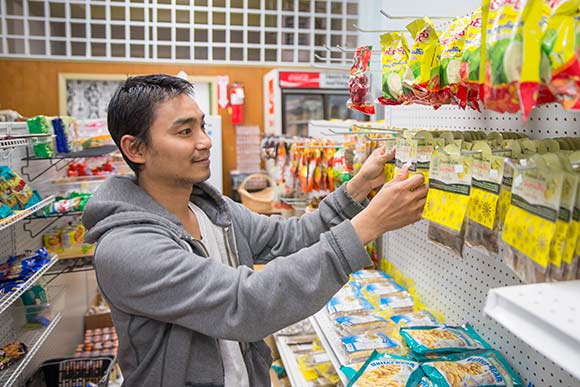Refugees build new lives and businesses in Cleveland
During a period of political turmoil in Bhutan in the late 1980s, Nar Pradhan and his family fled to Nepal seeking refuge. After spending 17 years in a refugee camp, they came to Cleveland looking for a new life.
“It was a very miserable life,” says Pradhan of his past.
Today, more than 2,000 Nepali-speaking Bhutanese live in the Cleveland area, with another 2,000 in Akron. While it is not easy to move to a new country and a new city full of different cultures, languages and traditions, people like Pradhan not only make it work, they become some of Cleveland’s most successful entrepreneurs.
Refugees differ from immigrants in that they have left their home countries not by choice but for fear of being persecuted for reasons of race, religion, nationality, membership of a particular social group, or political opinion, as described by the United Nations, which resettles refugees.
Less than one percent of refugees are ever re-settled outside of camps, and the United States takes 50 percent of those who do get out of the camps, according to Rebecca Mayhew, relationship manager with the Economic and Community Development Institute (ECDI). “Cleveland is just starting to get more refugees as other cities can’t take them,” she says.
ECDI was founded in a Columbus community center basement in 2004 by Inna Kinney, herself a Russian refugee, who wanted to help immigrants and refugees start businesses. “A huge part of the reason she started ECDI was because she knew how hard it was to get capital financing and get a business off the ground,” says Mayhew. Eleven years later, ECDI also has offices in Cleveland, Toledo and Akron and is the fourth largest intermediary microloan lender in the country.
From 2000-2012, 4,518 refugees resettled in Cleveland, according to a report prepared in 2012 for the Refugee Services Collaborative (RSC). The RSC also estimates that Northeast Ohio has welcomed more than 2,500 refugees since 2008. The majority of them come from Bhutan, Burma, Iraq, and Somalia. Today, 500 to 700 refugees now arrive in Cleveland annually.
There are many organizations in Northeast Ohio focused on transitioning refugees into their lives here. The U.S. gives refugees six months to establish themselves after they arrive in their new cities. Once they are settled, refugees are often some of the biggest contributors to a city’s economic success. They tend to have a strong work ethic and contribute to the economy. The average refugee income is $31,000 in Northeast Ohio, compared to the $20,800 U.S. average, according to Global Cleveland, which makes sure the newcomers get off on the right foot.
Refugees play an important role in Cleveland’s economy. “It’s important to us that the refugees that are here are welcome and thrive,” says Global Cleveland president Joy Roller. “These people come here with nothing, yet have incredibly lot to offer. It’s a myth that refugees are a drain on the economy. They are an absolute plus. Their economic impact is 10 times what we spend on getting them here and settled.”
In addition to the positive economic impact, refugees add diversity to the region, says Roller. “They help make a more vibrant culture in a globally connected economy,” she says. “It’s great to have people from all over the world.”
Introducing Bhutan to Cleveland
At least 38 refugee-owned businesses were started between 2002 and 2012, according to the RSC report, with a total direct revenue of $7.6 million. Those businesses employed 141 workers. The report also states that refugees are more likely to be entrepreneurial and create successful businesses than American-born citizens.
Creating a successful business, just as with all entrepreneurs, comes with struggles, hard work and patience. For these entrepreneurs, it’s a family affair that came out of years of saving, working in other jobs and dealing with cultural barriers in a new country.
When Pradhan and his family first arrived in Cleveland, they had trouble finding some of the traditional goods they were used to having. “When we came here it was difficult to get our spices and cultural items,” he recalls.
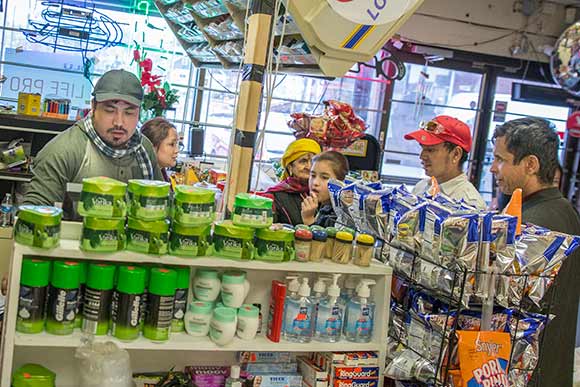 South Asian Grocery on W. 127th Street and Lorain Ave
South Asian Grocery on W. 127th Street and Lorain Ave
With a growing Bhutanese population, Pradhan, who used to be a teacher, decided to open a store so the community could get their traditional groceries. In 2012, he opened South Asian Grocery & Z-Wireless on W. 127th Street and Lorain Avenue. “It’s a one-stop shop,” Pradhan says. “We have cell phones, beer, wine and groceries. And we are going to introduce Nepali cuisine.”
Pradhan got mentoring and encouragement from Cleveland Catholic Charities to open the store, while ECDI provided business assistance. Pradhan’s entire family works at the store to make it succeed. “ECDI helped us set up a business plan and gave us some resources,” he says. “It’s a lot of work, it’s busy, but we are enjoying it. It’s sometimes difficult, but we have the same vision and we overcame it.”
Pradhan hasn't taken a loan from ECDI, but he and his family are talking about different options as they expand their business presence in Northeast Ohio.
Dreams of Cleveland’s first Burmese restaurant
Kyawswar Oo, originally from Burma, came to the United States via New York in 2004 after obtaining political asylum due the persecution he faced for his pro-democratic activism. He worked on a ship out of Burma before getting involved as an activist. “My dad was an engineer on a sea-going vessel,” Oo explains. “We were not rich, but I could live a normal life. I graduated high school and also worked on a sea-going vessel. The United States is a big country, but it’s the most popular country in the world.”
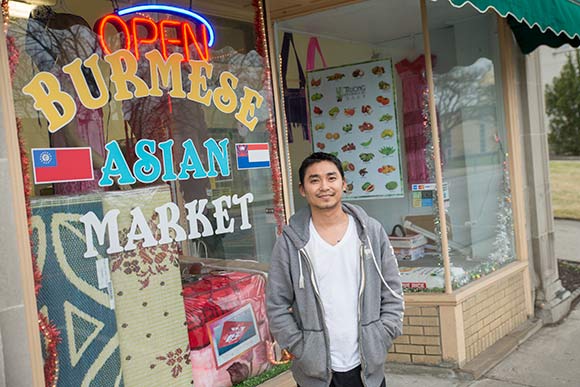 Kyawswar Oo
Kyawswar Oo
When he received asylum, Oo lived in New York, Los Angeles and San Diego, where he made a living making sushi. Oo moved to Cleveland in 2011. While he earned good money as a sushi chef, even owning a franchise out of Giant Eagle, Oo, 36, is an entrepreneur at heart.
Two years ago, Oo and his wife, Nawkleinn “Meemee” Oo, opened the Burmese Asian Market in Lakewood, which is home to 80 percent of Cleveland’s 1,500 Burmese residents. The original idea was to sell Burmese food not easily obtainable in Cleveland. What Oo soon found was that Americans were more intrigued by his selection than native Burmese customers.
“The business in the beginning, it was really hard, especially because people didn’t support me much,” Oo recalls. “Our people didn’t want to spend that much money, with delivery fees for bringing in food from another country. But American people came to my store and bought a lot of my food.”
Oo still works three other jobs – making sushi at a Giant Eagle, working at a sushi bar at Bowling Green State University, and working as an Uber driver – to make ends meet. His wife tends to the store and their three-year-old daughter Zoey when he can’t be there during the day.
The market, which carries traditional Burmese and Asian food, as well as some American food, received assistance from ECDI with training and a loan to keep things going. “Rebecca came to the store and started to help me, and she understands what I want to do,” Oo says of Mayhew. “ECDI helped me a lot.”
In addition to the loan, Mayhew helped Oo convince CEI to upgrade the electrical system in part of the store. Oo can’t afford the full upgrade so he still blows fuses on his coolers. Additionally, there is only one parking space in front of the store.
Aside from quitting his other three jobs and focusing solely on the Burmese Asian Market, Oo’s dream as an entrepreneur includes opening Cleveland’s first Burmese restaurant. He often cooks for his market customers. “I really want to open a restaurant because I love to cook,” he says. “When I cook, I give it to the customers and they love it. It makes them happy. I don’t want to open a big restaurant – 10 to 15 tables is just enough.”
Oo describes Burmese cuisine as a cross between Chinese, Indian and Thai food. “It looks like Chinese food, but with a lot of curries and stews and vegetables,” he explains. “It’s similar to Thai food.”
Lakewood is now the Oo family’s hometown. “I love to call Cleveland home,” he says. “When I first came to Cleveland I didn’t like it because it’s cold. But I love it. It’s a small city and the living costs are good for me. If you want to start a business you can. I never could have done that in California because it’s too expensive.”


